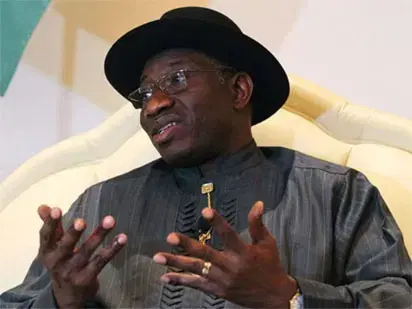
Goodluck Ebele Jonathan
By Dr. Michael Omoruyi | iNewsAfrica Editorial
A Legal Storm Brews in Abuja
Nigeria’s political landscape has been jolted once again as the Federal High Court in Abuja was asked to issue a perpetual injunction restraining former President Goodluck Ebele Jonathan from contesting the 2027 presidential election.
The suit, filed by legal practitioner Mr. Johnmary Chukwukasi Jideobi, has drawn national attention — not just for its implications on one man’s ambition, but for what it represents in the ongoing struggle to define the limits of presidential tenure under Nigeria’s Constitution.
The case, FHC/ABJ/CS/2102/2025, names Jonathan as the 1st defendant, the Independent National Electoral Commission (INEC) as the 2nd, and the Attorney General of the Federation (AGF) as the 3rd.
The Crux of the Legal Question
At the heart of the dispute is a constitutional interpretation of Sections 1(1), 2(3), and 137(3) of the 1999 Constitution (as amended).
The plaintiff argues that Jonathan — having first completed the tenure of the late President Umaru Musa Yar’Adua (2010–2011) before serving a full term from 2011 to 2015 — is ineligible to contest for the presidency again.
The argument draws strength from the Fourth Alteration (No. 16) Act, 2018, which introduced a clear restriction:
“A person who was sworn in to complete the term of another President shall not be elected to the office of President more than once.”
In essence, the suit contends that Jonathan has already reached the constitutional ceiling of holding office twice — first as successor, then as elected President — and that any further attempt to contest violates both the spirit and letter of the Nigerian Constitution.
A Nation Watching Closely
The case rekindles a familiar debate: Can a former President who once completed another’s term legally return to power?
For many Nigerians, this is not just a technical question of law — it is a litmus test for the credibility of Nigeria’s democratic institutions.
-
Supporters of Jonathan insist that the 2018 constitutional amendment cannot retroactively apply to him, as it came after his time in office. They argue he served only one elected term and therefore remains eligible.
-
Opponents, however, maintain that the spirit of constitutional democracy — limiting any one person’s cumulative tenure to eight years — should prevail to prevent executive overreach and political recycling.
Either way, the ruling will reverberate across political lines, potentially altering alignments and ambitions as the nation marches toward 2027.
The Judiciary at a Crossroads
This case offers a rare opportunity for the judiciary to reaffirm its role as guardian of constitutional order.
Nigeria’s courts are once again being tested to balance justice, legality, and political pressure in a nation still defining the boundaries of democratic power.
If the Federal High Court upholds the plea and issues an injunction, it would:
-
Prohibit Jonathan from presenting himself to any political party for nomination.
-
Bar INEC from accepting or publishing his name as a presidential candidate.
-
Set a judicial precedent likely to influence future cases involving former governors or presidents who once completed another’s tenure.
Such a decision could close the chapter on speculation about Jonathan’s comeback — or conversely, if dismissed, embolden other political figures contemplating a return through constitutional loopholes.
The Broader Implication for Nigeria’s Democracy
Beyond the courtroom, this case raises deeper questions about Nigeria’s political maturity and the durability of its democratic institutions.
It tests whether the nation has truly internalized the principle that power must rotate, renew, and remain accountable — not recycle indefinitely under familiar faces.
This legal challenge is, in many ways, a referendum on Nigeria’s constitutional integrity. It will determine whether the judiciary upholds the sanctity of the two-term limit or bends to political expediency.
A Defining Moment Ahead
As the 2027 election cycle gathers momentum, this case serves as a crucial reminder:
In a democracy still maturing, the fight for constitutional clarity is as vital as the fight for electoral fairness.
Whether Jonathan’s political journey ends here or continues will depend not on sentiment, but on the Constitution’s ultimate verdict — delivered through the courts.
Whatever the outcome, this will go down as one of the most consequential legal battles in Nigeria’s post-1999 political history.
About the Author
Dr. Michael Omoruyi is a technology executive, author, and founder of iNewsAfrica, a digital platform amplifying African and diaspora voices. He writes on governance, innovation, and the socio-political transformation shaping modern Africa.

Dr. Omoruyi’s memoir launches across Amazon and other bookstores Worldwide – October 21, 2025
Follow iNewsAfrica channel on WhatsApp:
https://whatsapp.com/channel/0029VbAPrqI96H4JXXQrKP1V











